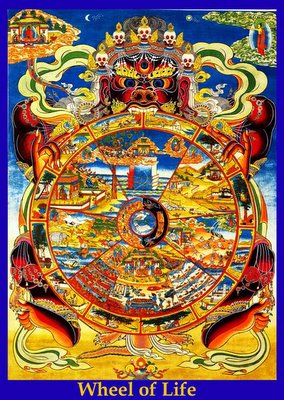
How is it that we suffer? We suffer through our engagement in nonvirtuous actions. Suffering is the natural result of nonvirtuous actions. In terms of relationships between actions and their effects called the law of karma, the result of nonvirtue is suffering and the result of virtue is joy. So it is we ourselves who are punishing ourselves. We ourselves are inflicting the retribution for our acts. We are experiencing the natural consequences of our own acts. There is no external agent who is punishing or rewarding us for them.
___
In terms of the relationship between actions and thier consequences, nothing is ever wasted. No action--be it wholesome or unwholesome, virtuous or nonvirtuous--is without its own consequences. It's very easy to think in our present situation that we can get away with lots of things and that our nonvirtuous actions are insignificant because we won't have to experience their consequences. In fact, this is an error.
Gyatrul Rinpoche, "Introduction" to Natural Liberation.
It's easy, as Rinpoche says, to believe that we can skate by with sketchy actions and not pay the debt, but it seldom happens that way. Just because we cannot remember the cause does not mean the effect is not directly related.
I have been observing my life over the past year as I work at mindfulness and at trying to be a better, more compassionate person. This is certainly a subjective study with no control group, but I feel that as I have worked to be a better person the quality of my life has improved. Cause and effect? Maybe. It feels that way to me.
Nonlocal influence might be a way to explain it. But then the physicists would be displeased that a distant event could influence a current event with no direct physical trail of causality. So why does causality have to be physical, or even energetic in the quantum sense?
No comments:
Post a Comment